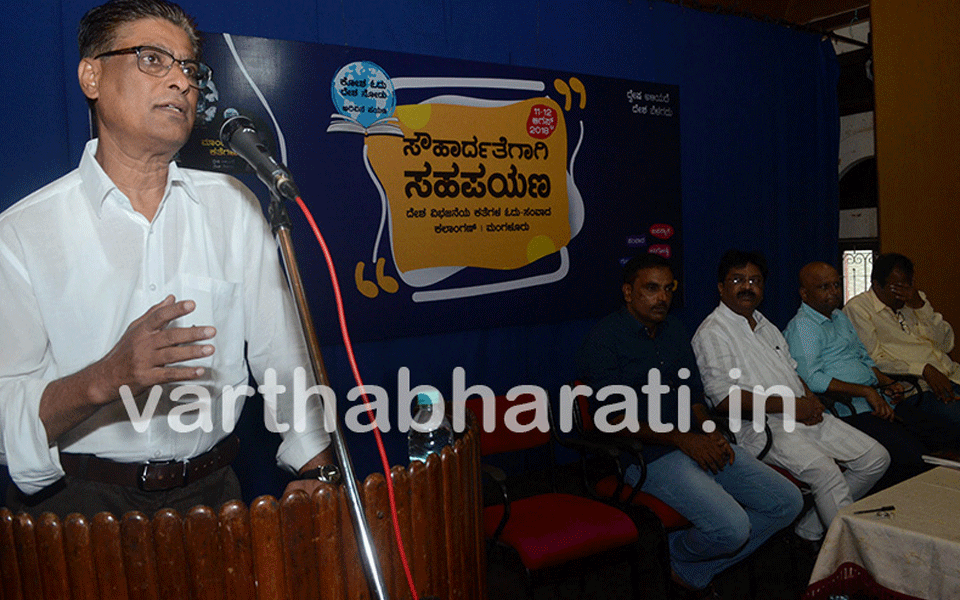Mangaluru, August 11: The increasing trend of putting the history’s onus on present society is the greatest barbarity. In such a scenario, reading books will reduce prejudices; commented Rahmat Tarikere.
Addressing as the chief guest of the function, he said that literary readings were dwindling. During this sensitive period, arranging these sorts of programmes based on history books is genuinely appreciable, he said.
“Our nation has also become one such wretched country, where a religion turns as a weapon and creates a war-like situation within the citizens. Killing writers or putting them on hit-list merely because of their ideas is a dangerous development.”
“When a group systematically attacks society in the name of religion, a small lamp kind of struggle is right in such circumstances,” he added.
“History is filled with thoughts like Brahmins are casteists, Muslims are cruel, and Dalits are dirty. We need to struggle to break these believes. Good and bad people are there in every religion and community.”
Books provide the truth of the history that people keep on changing in the society. Hence it is one of the most urgent needs to take a look at the fact. History should create a future in the present, instead of turning as a weapon to break the society.



Let the Truth be known. If you read VB and like VB, please be a VB Supporter and Help us deliver the Truth to one and all.
Dubai (AP): Lebanon's state-run National News Agency said on Tuesday that the Lebanese army is evacuating some of its positions along the border with Israel.
The agency said that the troops are redeploying to other posts.
The report comes after Israel's military said it is conducting operations inside Lebanon along the border with Israel.





